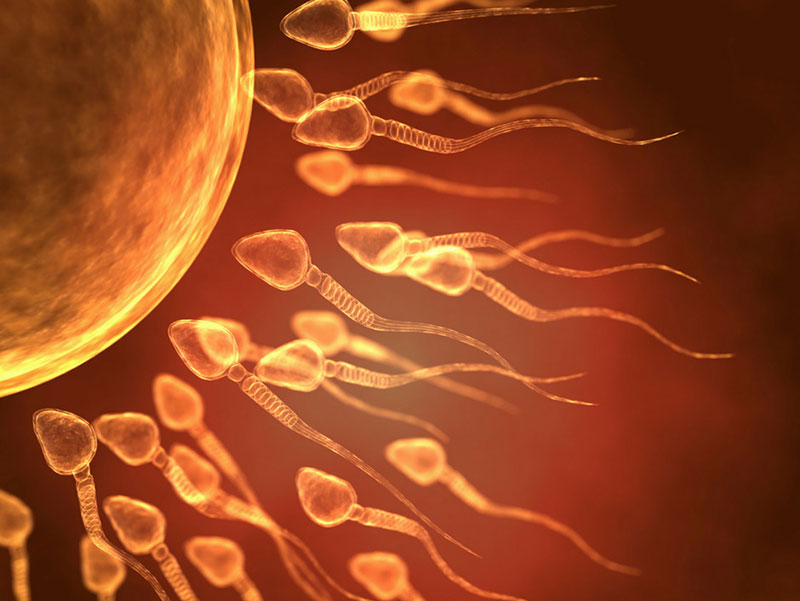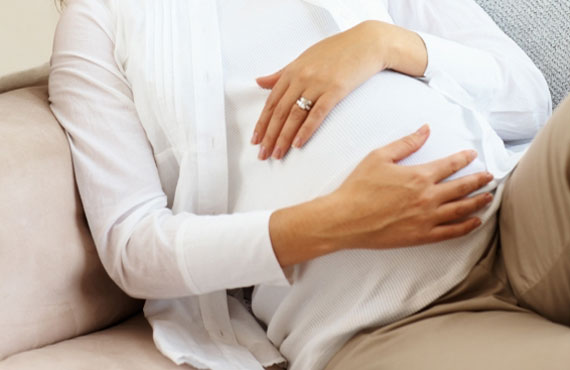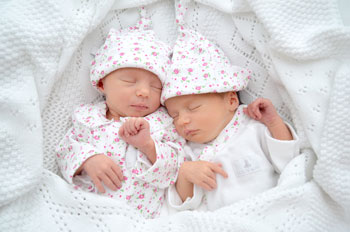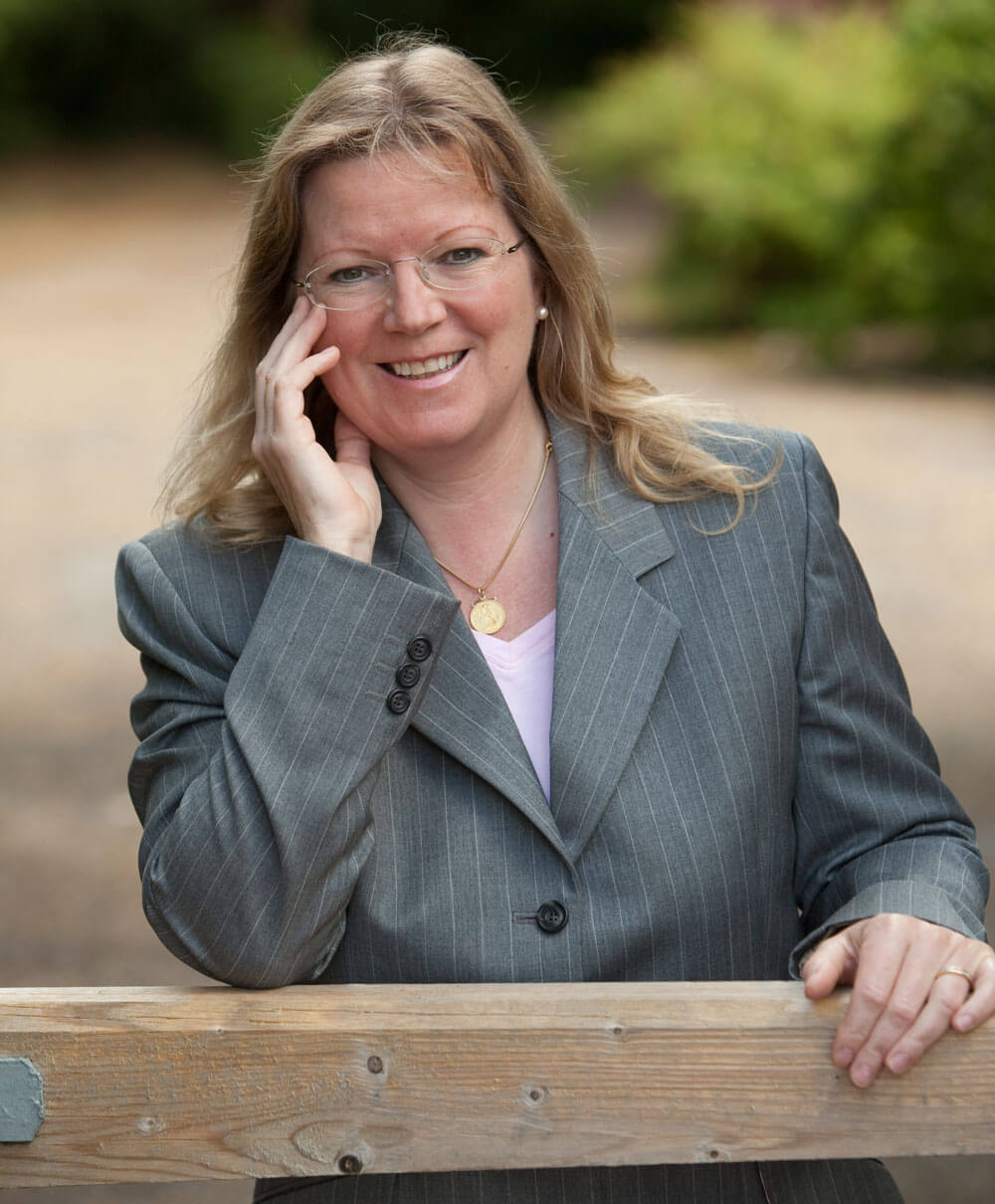Fertility Issues: Infertility or Subfertility? Unexplained Infertility?
Fertility problems are increasingly common with 1 in 6 UK couples visiting a hospital fertility specialist. The number of couples who are actually infertile is lower at 5%. So if you are struggling to conceive it doesn’t necessarily mean that you are infertile, it may well be that you are subfertile rather than infertile.
People tend to think of infertility as a women’s problem, but the reality is that infertility is equally prevalent in men and women accounting for about a third of cases each. The remaining 30% of couples are described as having ‘unexplained infertility’ – which means that the cause of their inability to conceive remains unknown after thorough fertility testing. ‘Unexplained infertility’ is not a diagnosis, but rather the lack of one. Again these couples may be subfertile rather than infertile. There’s a big difference.

Your health and fertility are influenced by many factors including your genetic heritage from your parents, your medical history, lifestyle (diet, work, sleep, exercise etc), your gynaecological history (STDs, period pain, PMT etc), your emotional status and a wide variety of environmental factors (exposure to toxins, medications, contraceptive history etc). So if you are subfertile there’s a lot you can do in terms of taking care of yourself and improving your lifestyle to help enhance your fertility. Whether you are trying to conceive naturally or planning assisted conception such as IVF, acupuncture can really help.
Recommended Reading: Total Fertility by Emma Cannon (2013), Macmillan.
What is Fertility Acupuncture?
Acupuncture has been used in China and the East for thousands of years to treat a wide range of conditions including fertility. Acupuncture involves the insertion of very fine needles into specific points on the body.
Acupuncture is holistic – which means it treats you as a whole person. Helping you conceive is about achieving balance in the emotional, hormonal and physical aspects of your health.
Acupuncture treatments for fertility draw on the well established and ancient principles of Chinese Medicine primarily using traditional (body) acupuncture points. Over the last 20 years there have been significant developments in fertility acupuncture and advances in acupuncture research. As a consequence, some of the more contemporary forms of acupuncture, such as ear acupuncture, have been integrated into traditional fertility acupuncture treatments.

Fertility acupuncture protocols have developed, such as the Paulus Protocol, which has been shown to increase pregnancy success rates with IVF.
All your fertility acupuncture treatments are tailored to meet your individual needs and to address specific fertility issues at the right time in your cycle.
How does acupuncture help fertility?
Research studies indicate that acupuncture may help fertility in a variety of ways:
- Balancing hormones
- Regulating the menstrual cycle
- Increasing blood flow to the pelvic organs and improving function of the ovaries and uterus
- Increasing blood circulation to help optimise endometrial (womb lining) thickness in preparation to receive the fertilised egg
- Helping to stimulate ovulation in women with no or irregular ovulation
- Promoting embryo implantation
- Enhancing egg quality and sperm parameters (sperm count, motility and structure)
- Helping women with polycystic ovarian syndrome PCOS , endometriosis, painful periods – dysmenorrhea, pre-menstrual tension PMT, pelvic inflammation
- Reducing anxiety and stress and improving overall health and energy levels
The World Health Organisation (2003) lists female infertility, male sexual dysfunction, polycystic ovary syndrome among conditions for which the therapeutic effect of acupuncture has been shown.
IVF Acupuncture can help prepare couples for IVF, help with the side-effects of IVF medication and prepare the body for embryo transfer. Acupuncture on the day of embryo transfer has been shown to increase pregnancy rates (Paulus et al., 2002).
Research evidence
- Acupuncture for Female & Male Fertility, ART, IVF – click here for more information.
- Acupuncture for Polycystic Ovarian Syndrome (PCOS) & Endometriosis – click here for more information.
Who needs Fertility Acupuncture?
There are many reasons why women seek help with their fertility. Perhaps you want to improve your health prior to conceiving? You may be worried that you will struggle to fall pregnant? Perhaps you have been trying for months without success? Perhaps you have a fertility related condition, such as PCOS or endmetriosis?
In addition to helping you improve your physical health and fertility, acupuncture is a great source of support for anyone having difficulty getting pregnant. Fertility problems can be deeply distressing, especially if you have suffered the loss of failed pregnancies. Struggling to conceive may result in depression, anxiety, sexual difficulties, relationship problems, marital tension and feelings of guilt, anger or loss. On top of all this, your well meaning friends may be telling you – just relax and it will happen …aaarrrrgh! In these situations it is quite normal to feel anxious and emotional. Acupuncture can help.

What happens when I come for a treatment?
It’s helpful if both you and your partner attend the initial consultation. At this first consultation I will take a thorough case history, including your medical history, and in particular ask questions about your periods, contraceptive history, any history of STDs, about any relationship issues etc. I will also ask you about your diet, work and sleep habits as your lifestyle is important.
If you haven’t had acupuncture before you may be surprised to know that it is almost painless and wonderfully relaxing!
For more information on what happens in an acupuncture treatment, click here to visit the Frequently Asked Questions section.
How many sessions will I need? How often do I need to come?
If you decide to have acupuncture to help you with fertility you will probably need a course of treatments.
In Chinese Medicine the menstrual cycle is seen as the foundation of a woman’s health, it tells a lot about your health and wellbeing as well as your fertility. If female fertility issues are suspected, it’s best for you to come for acupuncture weekly for the first 3 – 4 weeks so I can get a picture of what is happening at different stages in your menstrual cycle and make a Chinese medical diagnosis. The treatment plan will depend on the diagnosis. Thereafter it may be appropriate to see you once or twice a month at key times in your cycle, depending on your circumstances. Everyone is different.
If sperm parameters are an issue then I may suggest weekly treatments for 2-3 weeks then monthly as health improves.
When should I start acupuncture treatment?
If you have concerns about your health or fertility, there’s no better time to start than the present. That said, what’s most important is that you make the necessary changes to your lifestyle now. You need to start to understand your menstrual cycle, quit smoking, limit your drinking, get sufficient exercise and rest and eat a regular balanced diet. Acupuncture can help, but it is essential that you optimise your lifestyle and nutrition at the same time.
If you are currently run down or in a poor state of health, it might be an idea to have regular acupuncture and improve your diet etc before trying to conceive.
If egg or sperm quality is an issue, it’s a good idea to have regular acupuncture for a minimum of 3-4 months before starting IVF as this is how long it takes for a mature sperm or egg to develop.
Acupuncture for IVF
If you are planning IVF, it’s beneficial to start your acupuncture treatments well in advance so we can get a view of your health and get your body in balance before you start the IVF medications. It is recommended that you have weekly acupuncture once you have started the IVF medication and then 2 sessions on the day of egg collection (one pre- and one post-egg collection), 2 sessions on the day of transfer (one pre- one post- transfer) and then a final treatment 4-7 days after the transfer. If your budget won’t stretch that far or your plans for IVF are imminent, don’t worry, acupuncture at any time during the process should help.
Fertility and IVF Acupuncture Treatment Discount Packages are available – click here for information on the Crowborough or Tunbridge Wells clinics.
Acupuncture for Fertility – Reviews & Success Stories
Client Testimonials
“I first went to Judy for help in 2015. My husband and I had been trying, unsuccessfully, to conceive a child for over 6 years and were on the point of considering going down the IVF route. We’d read about Judy’s specialism in fertility and so we were desperate to try anything that might help before we did that. I also suffer from Ulcerative Colitis which is a very debilitating condition. Over 2015, Judy gave me a weekly session starting with massage and then worked on various points to improve my fertility, rebalance my energy levels and reduce the effects of my UC. By April 2016, I got the magic line in the pregnancy test window and we now have a healthy 22 month old boy. Even better, another child on the way. I am certain that Judy’s treatments helped my body to rebalance itself and get it ready to be pregnant and my husband and I are so happy we found her. If we had not, who knows where we might still be now. The UC still continually troubles me but the sessions lessen its impact and though I feel tired after them, I do always feel better too. I would not hesitate to recommend that anyone who needs help with fertility, but also any other issue contact Judy first. She is highly experienced, professional and kind.”
“I was recommended Judy through a friend who saw her for acupuncture treatment to work alongside fertility treatment. I have had a long journey of trying to conceive our baby and always found Judy very professional and helpful during our IVF treatment. The treatment itself is very relaxing, and always starts with a lovely massage. I would recommend Judy to anyone who wants acupuncture to work alongside fertility treatment. Our last round of IVF worked and our baby is due soon. “
“After undergoing fertility treatment with Judy after two miscarriages, we are now delighted to be expecting our first baby. I am now having acupuncture to help support me through my pregnancy. We are really grateful to Judy for helping us during our journey. She is professional, efficient, warm and engaging. We highly recommend Judy and will continue to use her services in the future.”
“Dear Judy, I wanted to let you know that I often think of how helpful and calming you were during those stressful IVF rounds in 2017 and 2014. I always recommend acupuncture to anyone I know going through IVF as a result of the wonderful care I had with you.”
“Beautiful baby! I came to see Judy for a course of 8 fertility acupuncture sessions for IVF. She is really kind and supportive. I always felt great after my treatments. Judy was really flexible with appointment times, so I could get the right treatment at the right time. On the day of my embryo transfer I had sessions with Judy before and after the transfer. She even drove me home afterwards! In the final stages of pregnancy I had more acupuncture for induction and had a really easy birth. Now I have a happy healthy little girl. Judy I can’t thank you enough.”
“Judy, Thank you so much for all my accupuncture treatments over the last 18 months, and for your kindness, support and advice over this time. I firmly believe the accupuncture contributed to my timely and smooth labour. My contractions started properly just 2 hours after my appointment, and Baby G was born less than 36 hours later, missing her due date by just 4 hours – which is pretty good for a first time Mum.
I have always really enjoyed my visits to you and you helped me through some very low and anxious times. I had hoped to visit for some post birth treatments, but sadly coronavirus has prevented that. I will definitely be seeking your help when it is time for baby number 2 and I will certainly be recommending you to any pregnant friends of mine. All the best xxx “
“I decided to have acupuncture after 6 months of trying for a baby to give myself the best chance at falling pregnant. Judy was very knowledgeable on the phone and after my first consultation I knew I had made the right choice. She discussed all areas of my life including nutrition, work and home life to be able to tailor her treatment to my needs, and was even able to suggest changes to my diet that I believe had a very positive effect in the long run. I fell pregnant 4 months after my treatment began and believe the positive steps I took in that time including my acupuncture treatment and change in nutrition helped. I continued to have acupuncture throughout my pregnancy as I felt it had a beneficial effect on me and kept some of my early anxieties at bay. I wouldn’t hesitate to recommend Judy and would go back if I ever needed treatment again.”
“I contacted Judy for fertility acupuncture. I had 4 sessions and was pregnant after 3! Judy is very kind, reassuring and professional. I felt very comfortable in her care and looked forward to our sessions. She was very thorough in her approach and I wouldn’t hesitate in recommending Judy for fertility acupuncture.”
“Judy is very passionate about her work and incredibly knowledgeable – she also genuinely cares about you. These are qualities that are very hard to find nowadays and when we decided to have IVF it was important to find someone who we trusted completely to join us on our journey.
I often recommend Judy to friends and family and will definitely use her in the future. My daughter is a happy, healthy baby and I can honestly say that I believe the treatment I had before and during my pregnancy, with Judy, contributed to this. “
“I went to Judy after lots of research on the benefits of acupuncture to help IVF treatments. From the very first phone conversation I knew that Judy would be able to calm me and help. I attended both her Crowborough and Tunbridge Wells clinics and both are great. Judy is incredibly professional and really puts you at ease, she listened very patiently to me and explained thoroughly what each treatment would aim to do. We opted to have acupuncture weekly and then to have one the day before and then one a few hours after implantation, followed by two more following implantation. I firmly believe that Judy is one of the main reasons that this cycle worked when others failed, we welcomed a very healthy Chloe into our lives in November and I will always be thankful that my google search led me to Judy. She is brilliant at her job and I cannot recommend her highly enough.”
“Thank you so much for everything that you’ve done for us – I’m not sure if we’d have baby Mary now if we hadn’t had so much help and support.”
“I couldn’t recommend Judy enough. We had had two failed IVF attempts and were losing hope until we decided to give acupuncture in conjunction with IVF a try. I was sceptical at first, but Judy explained how and why acupuncture can help. I felt it really helped and now from our third IVF cycle (first with acupuncture) I am the proud mum of a beautiful 5 month old baby boy. I will definitely be going back to Judy next time around.”
“I met Judy when my husband had treatment with her for a shoulder injury. I felt at ease from the minute I met her and have always been at ease when being treated by her. Subsequently we found out that it would be necessary for us to have fertility treatment to start our family. So I contacted Judy and we chatted over the options and booked in some sessions – never once did I feel pressured to continue with treatment and I felt that Judy was always very aware of the financial strain this was having on us.
Throughout the whole process I was positive, upbeat and calm. I genuinely believe this is as a result of the acupuncture treatment I had throughout fertility treatment and pregnancy. I did not suffer with feeling overly tired (despite working shifts) throughout the first few months of my pregnancy, nor did I suffer with morning sickness. I am convinced this was because of the treatment I had beforehand! I continued to see Judy throughout my pregnancy and every other day when my daughter went 2 weeks overdue, again she was flexible and happy to do anything she could to fit me in! “
I can’t thank Judy enough for her kind and patient care whilst going through our IVF cycles. My sessions were moments of real calm in spite of the stress and the calming effect really helped me cope. We were very lucky that our last cycle worked and we were blessed with two beautiful babies. Judy is a lovely person to help you stay balanced on the IVF rollercoaster, I can highly recommend her.




